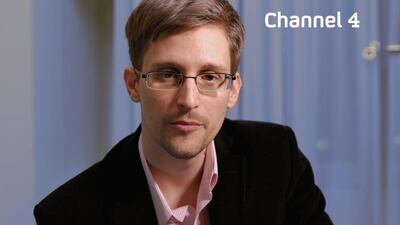Everyone is in favour of transparency and greater openness, aren’t they? A global NGO, Transparency International, is now famed for its annual Corruption Perceptions Index that ranks 174 countries around the world. (The UAE comes in at a very creditable 25th place – above France, Spain and South Africa.) And all are now familiar with the century-old dictum of the famous US Supreme Court Justice Louis Brandeis: “Sunlight is said to be the best of disinfectants.”
Yet in the name of greater openness, lives have been blighted and careers ruined. Two instances have arisen recently. The first was the former British Home Secretary Leon Brittan, who spent the last few months of his life believing, while stricken with cancer, that he was being investigated by the police over a historic rape allegation.
The case was all over the newspapers, and cast a deep pall of disgrace over the dying days of a distinguished public servant who had also served as vice president of the European Commission.
It now transpires that the authorities had decided not to proceed four months before Brittan’s death – but nobody bothered to tell his family, nor correct news reports that had identified the politician as the subject of so serious an inquiry.
Last Autumn, US federal agents began an investigation into Robin Raphel, a long-serving American diplomat whose late husband had been ambassador to Pakistan (he was killed in the same plane crash as President Zia Ul Haq). The prospective charge? That she was spying for Pakistan. Officials now say that the case “has all but fizzled”, as The New York Times puts it.
Yet the damage to her reputation has already been done. “Sometimes the whiff of scandal can be worse than any actual scandal,” says the Pakistani diplomat Husain Haqqani. “More people hear that you were investigated than care to know you were cleared or never actually charged.”
Many will remember the case of Dominique Strauss-Kahn, who had to resign as managing director of the International Monetary Fund after being accused of assault in a New York hotel room. The case was dismissed, but not before Mr Strauss-Kahn had been comprehensively trashed in the media.
He almost certainly would have become president of France – he was the Socialist front-runner, and the party’s subsequent candidate, Francois Hollande, won the election in which Strauss-Kahn would have stood. But charges of which he was innocent deprived him of both that position and his old job at the IMF.
Campaigners for transparency insist on as much being made public as possible. Yet was there any reason for the cases of Lord Brittan and Ms Raphel to be placed in the public domain? As Mr Strauss-Kahn’s travails show, we do not live in an age of reasoned deliberation. We live in a time when the court of instant and social media rushes to judgment. Has an allegation been raised? It must mean the accused is guilty, is the almost universal verdict.
In the past, it used to be said – with some irony – that “if it’s in the papers, it must be true”. At least newspapers have lawyers who are careful that what they publish can be backed up by facts. Today, partisan blogs masquerade as news sites, posts go viral on new media, and the truth gets lost in a blizzard of lies, rumours and assumptions.
It is like the return of the medieval mob. Vicious, capricious and leaving a trail of personal and career destruction in its wake, it completely undermines the principle of “innocent until proven guilty” – and its victims have virtually no recourse to compensation and restoration of reputation.
This may not be the aim of greater transparency. But it is the environment in which its results are felt – and manipulated.
Some advocates of openness, however, appear to set no bounds on what could or should be known and disseminated. Edward Snowden, who leaked US National Security Agency data, apparently thinks it is for him for decide, not the American authorities, what is “legitimately in the public interest” – never mind that antiterrorism work has been jeopardised as a result of his illegal disclosures.
Why should a few self-proclaimed whistle-blowers – many consider them to be traitors instead – to determine what the rest of the world has a right to know?
It would seem that any notion of privacy, whether at the state or the individual level, is alien to those who would let the sunshine into every cupboard, every wardrobe, even every bedroom. “Who has anything to fear from the truth?” is the frequent justification. But it is also for people and governments to judge what to disclose.
Such concerns may not trouble the narcissists who spend their lives sharing their most intimate details on Facebook or Twitter. But in societies that prize privacy, like the Gulf states and many others in Asia, transparency and openness must have limits.
Everyone does not have the right to know everything about everyone else – still less the right to publicise whatever choice morsels they desire. Their being true is not sufficient defence if it involves invading that sacred space containing the store of memory, the sense of identity and the very idea of the self. Nor is it a defence against breaking laws that have been promulgated by the state to determine what should or should not be transparent.
Sunshine does not belong everywhere. Nor is it always helpful in a world too hasty to judge. Not convinced? Ask the family of Lord Brittan, who went to his grave knowing that millions thought he was guilty of a most disgusting crime. A little less openness would have been kinder – and more just.
Sholto Byrnes is a senior fellow at the Institute of Strategic and International Studies, Malaysia


